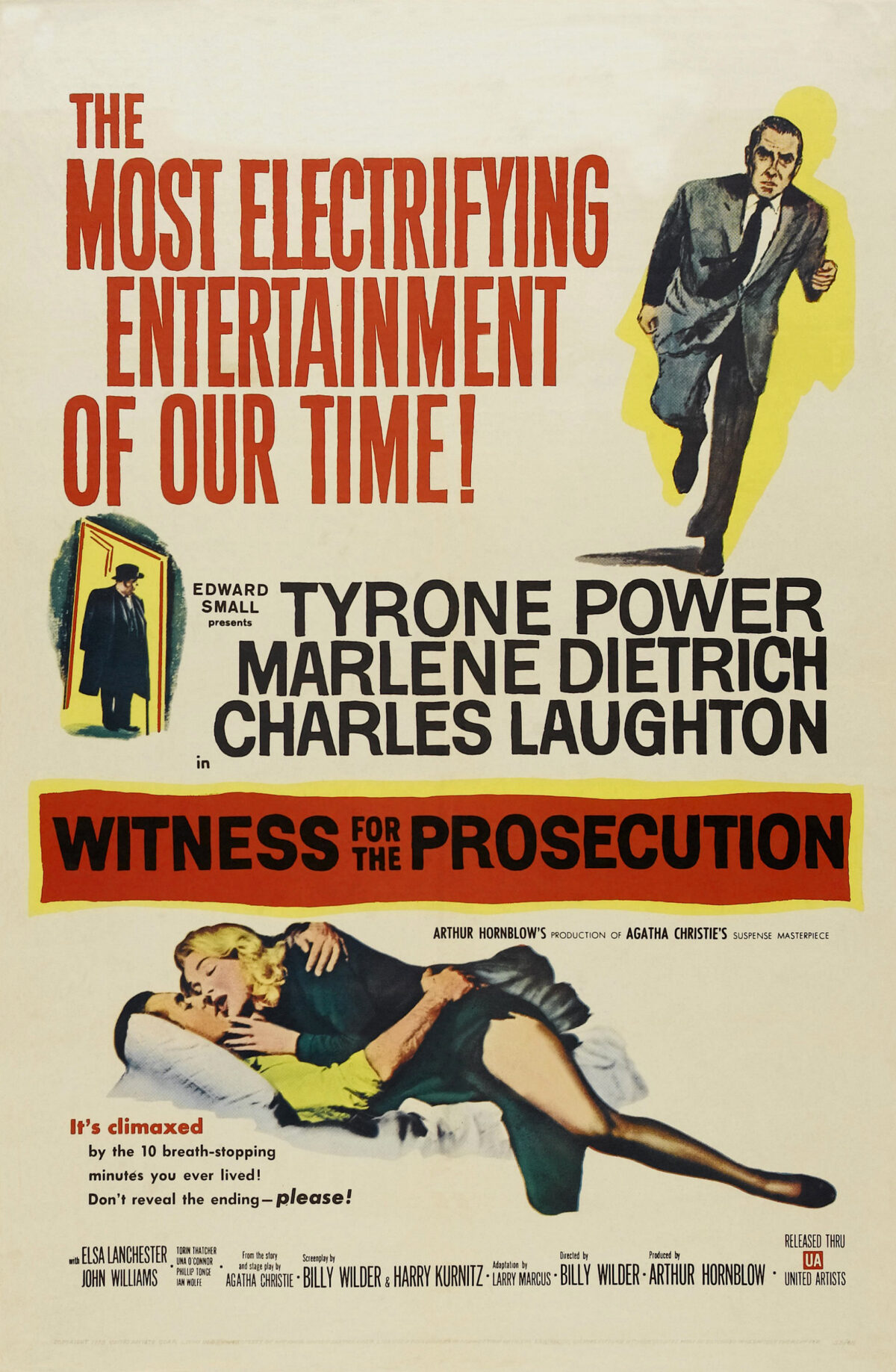Released in 1957 and directed by the acclaimed filmmaker Billy Wilder, “Witness for the Prosecution” stands as a classic courtroom drama renowned for its riveting plot twists, stellar performances, and intricate exploration of deception, manipulation, and the pursuit of truth. Based on Agatha Christie’s short story and adapted for the screen by Wilder and Harry Kurnitz, the film immerses viewers in a labyrinth of intrigue and suspense as it unravels the complexities of a high-stakes murder trial.
Plot Summary:
Set in London, the film follows the trial of Leonard Vole (played by Tyrone Power), a young man accused of murdering a wealthy widow named Emily French (played by Norma Varden) to inherit her fortune. As the trial unfolds, Vole’s fate hangs in the balance, with his defense attorney Sir Wilfrid Robarts (played by Charles Laughton) and his devoted nurse Miss Plimsoll (played by Elsa Lanchester) working tirelessly to prove his innocence.
Complicating matters is the unexpected appearance of Christine Helm (played by Marlene Dietrich), Vole’s enigmatic wife, who testifies as a witness for the prosecution and presents damning evidence against her husband. As Sir Wilfrid delves deeper into the case, he uncovers a web of lies, deceit, and hidden agendas, leading to a shocking revelation that changes the course of the trial.
Themes and Analysis:
At its core, “Witness for the Prosecution” delves into the complexities of truth, justice, and the human capacity for deception. Through its gripping narrative and multifaceted characters, the film explores themes such as:
- The Illusion of Truth: As the trial progresses, the lines between truth and falsehood blur, challenging the audience to question their assumptions and perceptions of reality.
- The Nature of Justice: The film raises profound questions about the pursuit of justice and the ethical dilemmas faced by lawyers, witnesses, and jurors in the quest for truth and accountability.
- The Power of Manipulation: Through its characters’ cunning and manipulation, the film exposes the fragility of trust and the ease with which perceptions can be manipulated to serve one’s own interests.
- The Complexity of Human Motives: “Witness for the Prosecution” delves into the depths of human psychology, exploring the motivations behind deceit, betrayal, and acts of desperation.
Performances and Direction:
Directed with finesse and flair by Billy Wilder, “Witness for the Prosecution” showcases the filmmaker’s trademark blend of wit, suspense, and sharp storytelling. Wilder’s masterful direction keeps audiences on the edge of their seats, orchestrating tension and intrigue with precision and skill.
The performances in the film are nothing short of stellar, with Charles Laughton delivering a tour-de-force portrayal of Sir Wilfrid Robarts, the brilliant yet curmudgeonly defense attorney. Laughton’s commanding presence and impeccable timing infuse the character with depth, humor, and humanity, earning him critical acclaim and an Academy Award nomination for Best Actor.
Marlene Dietrich captivates as Christine Helm, exuding mystery and allure in her portrayal of Vole’s enigmatic wife. Her nuanced performance adds layers of complexity to the character, keeping audiences guessing until the film’s electrifying conclusion.
Legacy and Impact:
“Witness for the Prosecution” remains a timeless classic, revered for its gripping narrative, stellar performances, and masterful direction. The film received widespread critical acclaim upon its release and garnered numerous accolades, including six Academy Award nominations.
Conclusion:
In conclusion, “Witness for the Prosecution” (1957) stands as a shining example of the courtroom drama genre, captivating audiences with its intricate plot, compelling characters, and thought-provoking themes. Through its exploration of truth, justice, and the human psyche, the film continues to resonate with viewers, leaving an indelible impression that lingers long after the credits roll. As audiences bear witness to the twists and turns of the trial, they are reminded of the complexities of the human condition and the enduring power of storytelling to provoke thought, evoke emotion, and challenge perceptions. Truly, “Witness for the Prosecution” is a cinematic masterpiece that transcends time and leaves an everlasting impact on all who experience its gripping tale of deception and intrigue.
